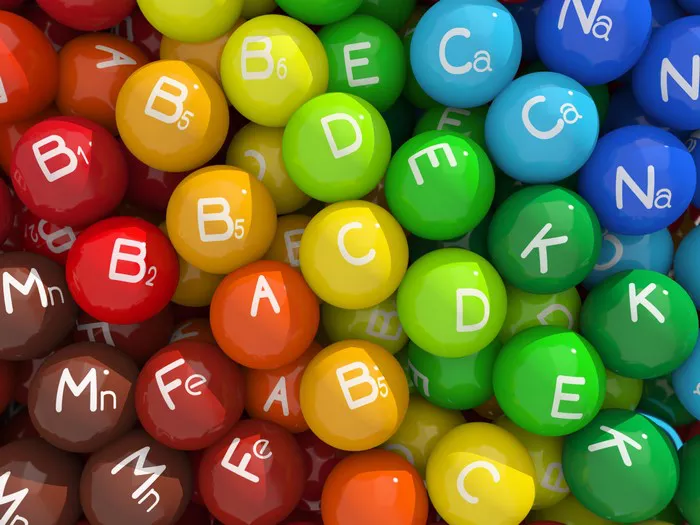Proper nutrition is vital for the health and well-being of pigs, contributing to growth, development, reproduction, and overall vitality. Vitamins and minerals play a crucial role in supporting various physiological functions and metabolic processes within the pig’s body. In this comprehensive guide, we explore the essential vitamins and minerals needed by pigs, their functions, sources, and the importance of balanced nutrition for optimal swine health.
Vitamin Functions and Importance: Building Blocks of Health
Vitamins are organic compounds that play essential roles in maintaining pig health and well-being. Each vitamin serves a specific function, contributing to various physiological processes. Here’s a breakdown of the essential vitamins for pigs and their importance:
Vitamin A (Retinol):
Function: Supports vision, skin health, immune function, and reproduction.
Importance: Essential for proper growth and development, immune response, and reproductive success in pigs.
Vitamin D (Cholecalciferol):
Function: Facilitates calcium and phosphorus absorption, promoting bone development and mineral metabolism.
Importance: Crucial for skeletal health, preventing bone disorders such as rickets and osteomalacia.
Vitamin E (Tocopherol):
Function: Acts as an antioxidant, protecting cells from oxidative damage.
Importance: Supports immune function, reproductive health, and muscle integrity in pigs.
Vitamin K (Phylloquinone):
Function: Essential for blood clotting and bone metabolism.
Importance: Supports proper blood coagulation and bone mineralization in pigs.
Vitamin B Complex (B1, B2, B3, B5, B6, B7, B9, B12):
Function: Plays various roles in energy metabolism, nervous system function, and nutrient metabolism.
Importance: Supports overall growth, development, and vitality in pigs.
Mineral Functions and Importance: Building Strong Foundations
Minerals are inorganic elements that serve as essential components of various physiological processes and structures in pigs. From bone formation to enzyme activity, minerals play critical roles in maintaining pig health. Here’s an overview of the essential minerals for pigs and their importance:
Calcium:
Function: Essential for bone and teeth formation, muscle function, and nerve transmission.
Importance: Crucial for skeletal health, muscle contraction, and overall structural integrity in pigs.
Phosphorus:
Function: Supports bone mineralization, energy metabolism, and cell signaling.
Importance: Works in tandem with calcium to maintain skeletal health and overall metabolic balance in pigs.
Magnesium:
Function: Facilitates enzyme activity, muscle function, and nerve transmission.
Importance: Supports energy metabolism, muscle function, and overall cellular health in pigs.
Potassium:
Function: Regulates fluid balance, nerve function, and muscle contraction.
Importance: Essential for maintaining proper electrolyte balance and cardiovascular health in pigs.
Sodium:
Function: Regulates fluid balance, nerve function, and muscle contraction.
Importance: Critical for maintaining proper fluid balance, nerve signaling, and muscle function in pigs.
Signs of Deficiency: Recognizing Red Flags
Deficiencies in essential vitamins and minerals can manifest with specific symptoms in pigs, indicating potential nutritional imbalances. It’s essential for pig owners and caretakers to recognize these signs early on to address deficiencies promptly. Here are some common symptoms associated with vitamin and mineral deficiencies in pigs:
Vitamin A Deficiency:
1. Poor growth and development
2. Vision problems or blindness
3. Reproductive issues, such as infertility or abortion in sows
Vitamin D Deficiency:
1. Rickets (bone deformities)
2. Delayed growth and development
3. Weakness or lameness
Vitamin E Deficiency:
1. Muscular dystrophy (white muscle disease)
2. Reproductive failure
3. Increased susceptibility to infections
Calcium Deficiency:
1. Poor bone development
2. Weakness or lameness
3. Reduced eggshell quality in laying hens
Phosphorus Deficiency:
1. Poor bone development
2. Reduced growth rate
3. Soft bones (osteomalacia)
Natural Food Sources: Tapping into Nature’s Bounty
A balanced diet for pigs should include a variety of natural food sources rich in essential vitamins and minerals. Both plant-based and animal-based ingredients can contribute to meeting the nutritional needs of pigs. Here are some common feed ingredients that are good sources of specific vitamins and minerals:
Vitamin A:
1. Plant sources: Carrots, sweet potatoes, leafy greens
2. Animal sources: Liver, fish oil
Vitamin D:
1. Sun-cured forages (alfalfa hay)
2. Fortified commercial pig feeds
Vitamin E:
1. Vegetable oils (soybean oil, wheat germ oil)
2. Green forages (alfalfa, clover)
Feed Supplements: Enhancing Nutritional Intake
In some cases, commercial vitamin and mineral supplements may be necessary to address specific deficiencies or ensure optimal nutrient intake for pigs. These supplements are available in various forms, including powders, liquids, and premixes, and can be added to pig feed or water. It’s essential to consult with a veterinarian or animal nutritionist to determine the appropriate supplementation strategy based on the pig’s specific needs and dietary requirements.
Factors Affecting Nutrient Needs: Tailoring Nutrition to Individual Pigs
The specific vitamin and mineral requirements of pigs can vary depending on factors such as age, weight, breed, stage of production, and health status. For example, growing pigs have higher nutrient requirements than mature pigs, while pregnant and lactating sows require additional nutrients to support fetal development and milk production. Additionally, certain breeds or genetic lines may have unique nutritional needs or predispositions to specific deficiencies. Therefore, it’s essential to consider these factors when formulating a balanced feeding program for pigs and to consult with a veterinarian or animal nutritionist to develop a tailored nutrition plan.
Consulting a Veterinarian or Animal Nutritionist: Partnering for Pig Health
In developing a balanced feeding program for pigs, it’s crucial to seek professional guidance from a veterinarian or animal nutritionist. These experts can provide valuable insights into the nutritional requirements of pigs, assess the quality of feed ingredients, and recommend appropriate supplementation strategies to address specific needs or deficiencies. By partnering with knowledgeable professionals, pig owners can ensure the health, well-being, and productivity of their animals while promoting optimal nutrition and growth.
Conclusion: Cultivating Health and Vitality in Pigs
Vitamins and minerals serve as the building blocks of health for pigs, supporting growth, development, reproduction, and overall vitality. By understanding the functions, sources, and importance of essential nutrients, pig owners and caretakers can develop balanced feeding programs that meet the specific nutritional needs of their animals. With proper nutrition, supplemented as needed and guided by professional expertise, pigs can thrive and flourish, embodying the epitome of health and vitality in agricultural settings.
[inline_related_posts title=”You Might Be Interested In” title_align=”left” style=”list” number=”6″ align=”none” ids=”6671,6723,6726″ by=”categories” orderby=”rand” order=”DESC” hide_thumb=”no” thumb_right=”no” views=”no” date=”yes” grid_columns=”2″ post_type=”” tax=””]































